Is Hair Density the New Bond Building?

Hair growth is — well, growing.
On the heels of the COVID-19 pandemic and the success of hair growth brands like Nutrafol, conversations surrounding hair loss among both male and female consumers — whether it be stress, aging-related or other — have seen a long-overdue destigmatization.
More from WWD
EXCLUSIVE: Pacifica's Brook Harvey-Taylor, 'Clean' Beauty Pioneer, Releases New Line of Fragrance
Monday Haircare Founder Is Making a Grown-up Hair and Body Care Brand
Trendalytics data indicates hair density searches were up 50 percent in December 2023 versus December 2021, while Circana reports products with hair growth benefits accounted for $45.3 million in sales in 2023, a 48 percent increase versus 2022. Units sold also grew, by 13 percent.
Fittingly, a slew of brands are looking to capitalize on interest by bringing increasingly personalized approaches to the space.
Take Curology, for example. The prescription acne care brand debuted its Hair Formula Rx for Hair Loss earlier this month, marking the 10-year-old company’s first foray into hair care. The offering harnesses minoxidil in varying intensities, accompanied by potential other actives such as finasteride, ketoconazole, spironolactone, caffeine and melatonin — all tailored to a user’s unique needs.
“All of the formulas harness minoxidil, then, depending on a consumer’s specific type of hair loss and demographic info, we can compound its effects with other active ingredients,” said Curology chief executive officer Heather Wallace, adding that the launch aims to both treat existing hair loss and serve as a tool for preventative care.
“We’re focused on men and women, but much younger than you would think from a hair loss perspective; really we’re looking at males ages 25 to 34 and women who are 18 to 34,” Wallace said.
SheaMoisture’s head of innovation, Obinna Keke, echoed the sentiment about the average hair loss product consumer aging down — a key insight informing the development of the brand’s new Minoxidil 2% Hair Treatment Solution, $24.99.
“What we’re learning is that the future consumer has moved to being proactive rather than reactive when it comes to preventing hair loss in their early 20s,” said Keke, adding that hair loss and breakage are among the top reported concerns of Black women, Sheamoisture’s target demographic.
To that end, the topical minoxidil is one component of the brand’s Amla Oil Bond Repair collection, which includes reparative hair oils, a shampoo and conditioner duo and a leave-in conditioner, collectively aiming to strengthen strands and reduce breakage.
“For us, what matters is the curation and personalization for women with type 3 and type 4 hair, who have historically been given a one-size-fits-all approach; we want to formulate for the uniqueness of their strands,” said Keke, adding that the line’s hydroflex amino blend complex caters to amino acids and proteins which are more prevalent in textured hair.
Presently, minoxidil and finasteride are the only FDA-approved ingredients to treat hair loss, though last summer Pfizer’s Litfulo gained FDA approval for treatment of severe alopecia areata. While regulatory constraints can make the hair growth space trickier to navigate for brands who aren’t tapping into those specific actives, certain ingredients like procapil, capixyl and caffeine have gained steam thanks to clinical testing despite not having garnered FDA-approval to date.
Aging hair care brand Better Not Younger, for example, taps procapil, capixyl and biotin for its Fortifying Hair and Scalp Serum, $49. Last July, the brand also inaugurated hydrogel hair thickening patches which feature capixyl, centella asiatica and red ginseng to target traction alopecia around the temples.
“For a long time, hair loss has been managed as one single issue and it’s not one issue,” said Sonsoles Gonzales, founder of the brand, adding that “the more specific, the more tailored a solution is, the more effective it will be and the more a consumer will want to incorporate it into their routine.”
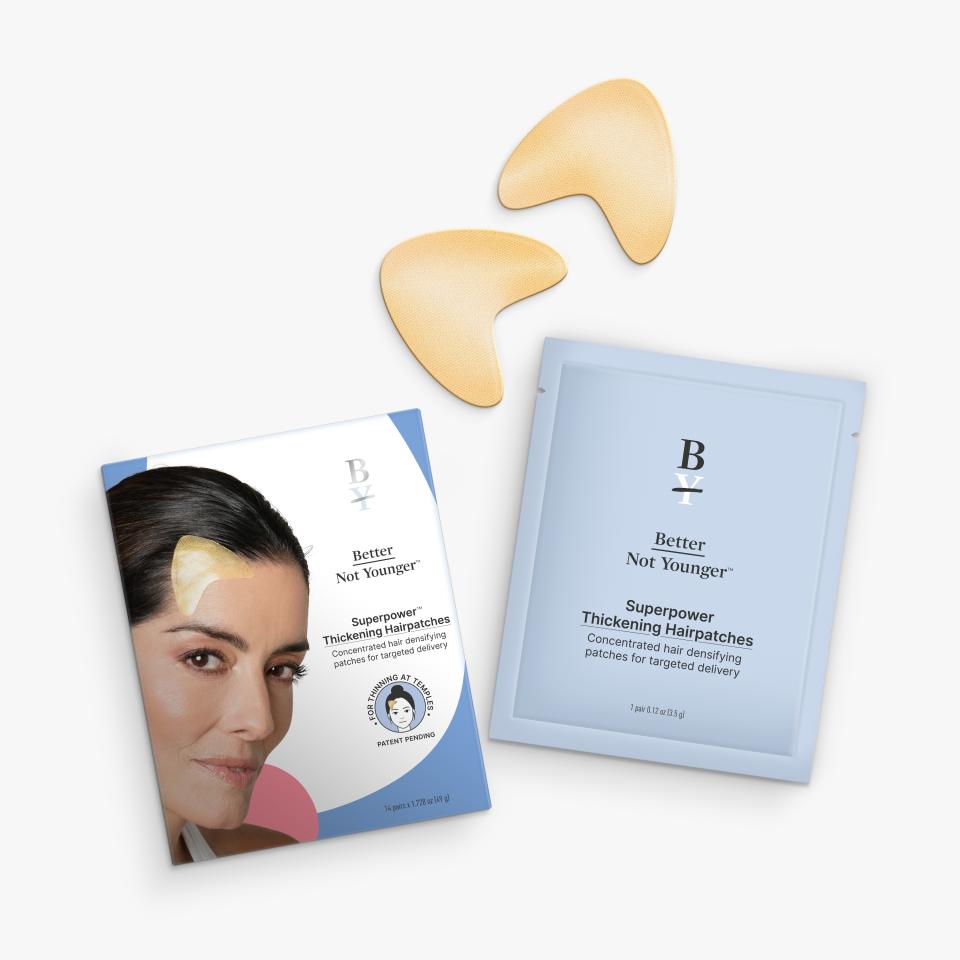
When Gonzales launched Better Not Younger at Ulta Beauty in 2021, she advocated for the products not to be relegated to the hair-thinning assortment, but rather placed in the hair care aisle. “It’s important to put hair loss solutions in the beauty aisle, not just the drug aisle — when you relegate the products to that bottom shelf, you’re shaming the consumer.”
From Better Not Younger’s offerings to Briogeo’s Destined for Density franchise to Mielle’s cult-favorite scalp oil and more, Ulta Beauty is ramping up efforts in hair density in response to growing interest in the space.
“[Hair growth] isn’t a category over here — it’s a layer of how we’re talking to our guests about building their regimen across steps, ” said Jessica Phillips, vice president of merchandising at Ulta, adding that hair density solutions span not just treatments, but also styling products which boost the appearance of thickness.
“I’m a big fan of, brands shouldn’t try to be all things to all people, but if you think about hair density from the lens of both styling and treatment — there are a lot of brands that can play in that space,” Phillips said.
When Ulta added influencer Dani Austin’s 2021-founded scalp and hair care brand, Divi, to its assortment, the positive reception was immediate. “In the first week, we were talking, like, Olaplex volume online,” Phillips said, adding that the brand’s thinning hair serum, which taps peptides, amino acids and caffeine was the clear hero.
“I think [product] formats will continue to evolve; in hair growth we’re seeing a lot of strengths in serums as being that core, as well as oils,” Phillips said, pointing to TikTok’s viral hair oiling trends, which draw from ancient South Asian rituals, as one proponent of this success.
Added Lucie Greene, founder and chief executive officer of strategy and trend forecasting firm, Light Years: “The bigger picture to the [hair growth] conversation is this emphasis on holistic hair health. My sense is that these more nutraceutical propositions are viewed as more effective, but as long as it’s not snake oil, as long as a company can prove the science behind their formulas, that’s what matters.”
Key launches to watch:
A number of brands are entering the hair growth space this quarter. Here, four of the latest.
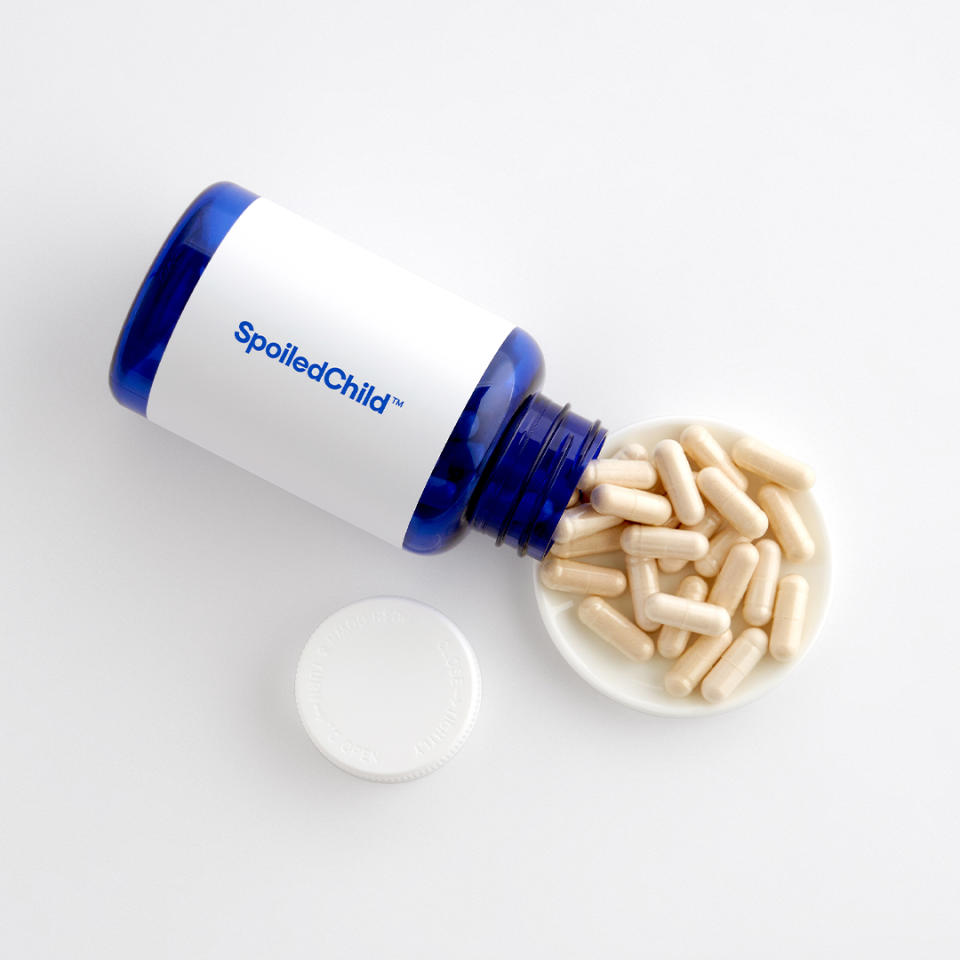
$59 at spoiledchild.com
Gaba, saw palmetto and L-theanine join in SpoiledChild’s new capsules.
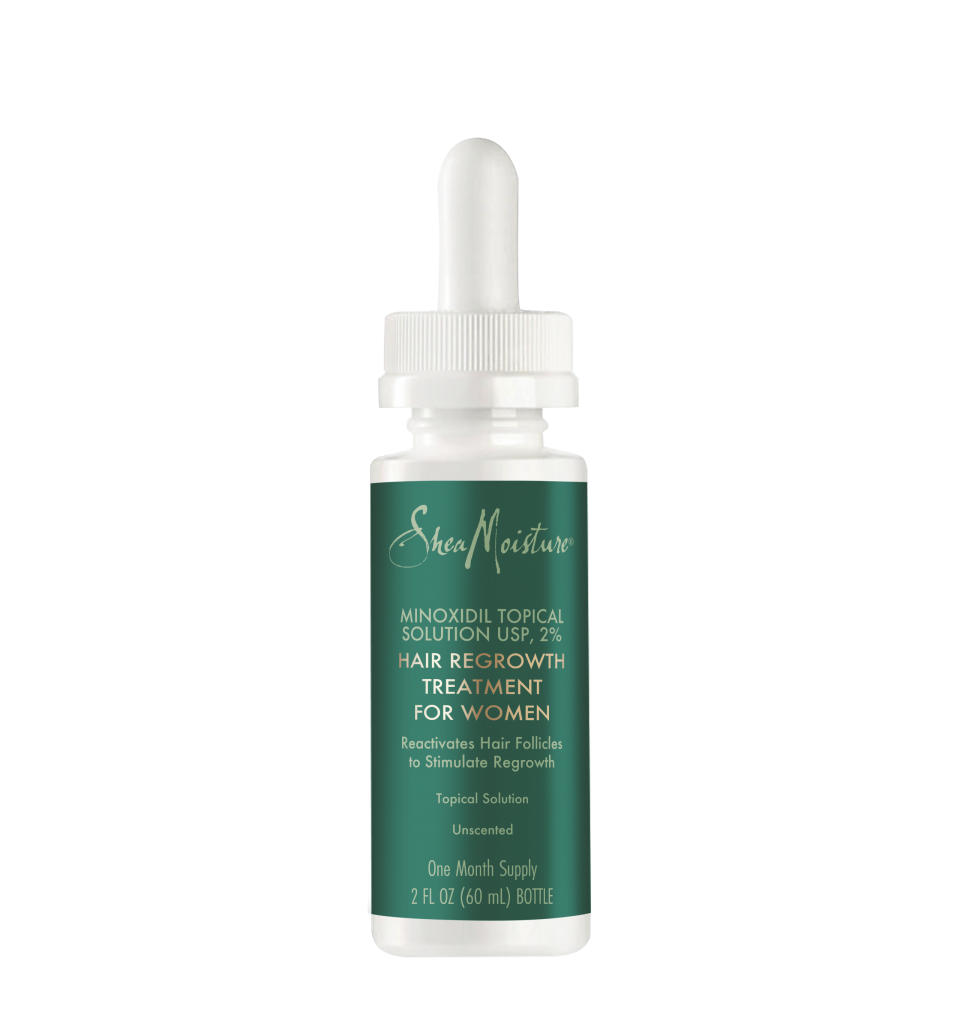
$24.99 at target.com, cvspharmacy.com
SheaMoisture looked to minoxidil for its topical hair loss treatment, part of its new Amla Oil Bond Repair Collection.
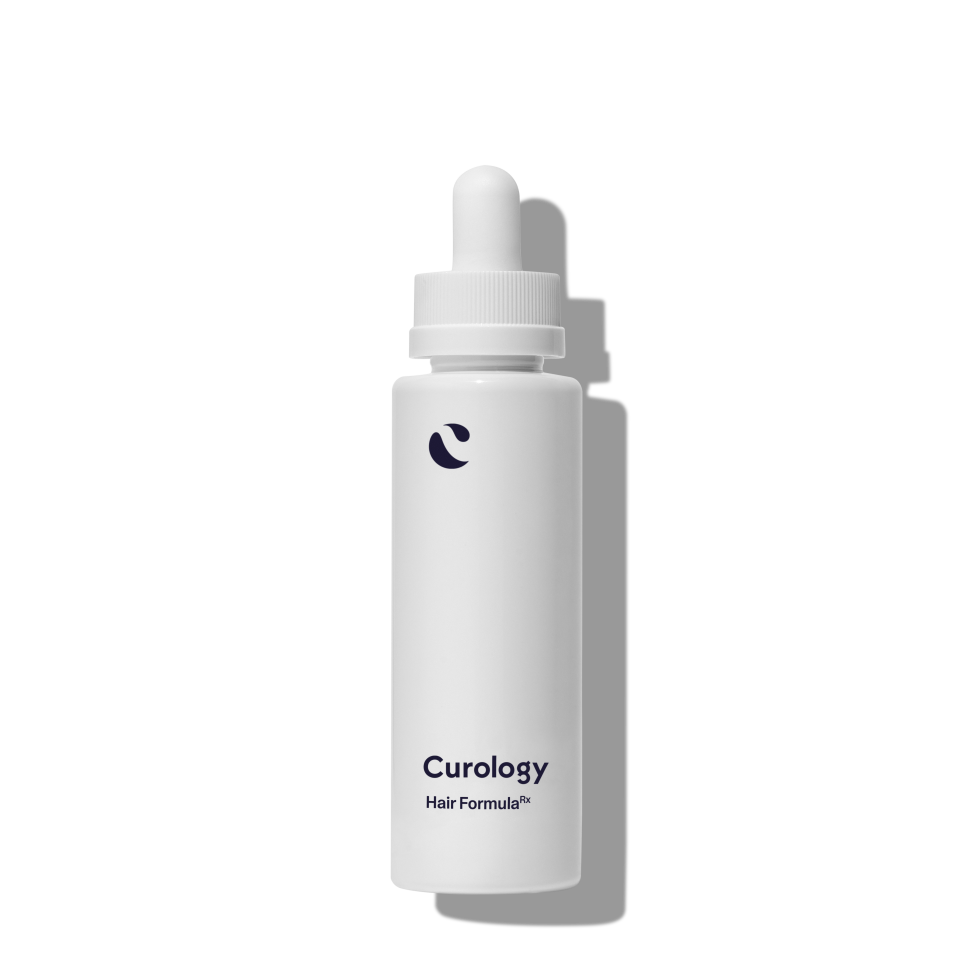
Curology’s prescription hair loss formula contains varying intensities of minoxidil, plus potential actives such as finasteride, ketoconazole, spironolactone, caffeine and melatonin.
$89.90+ at curology.com
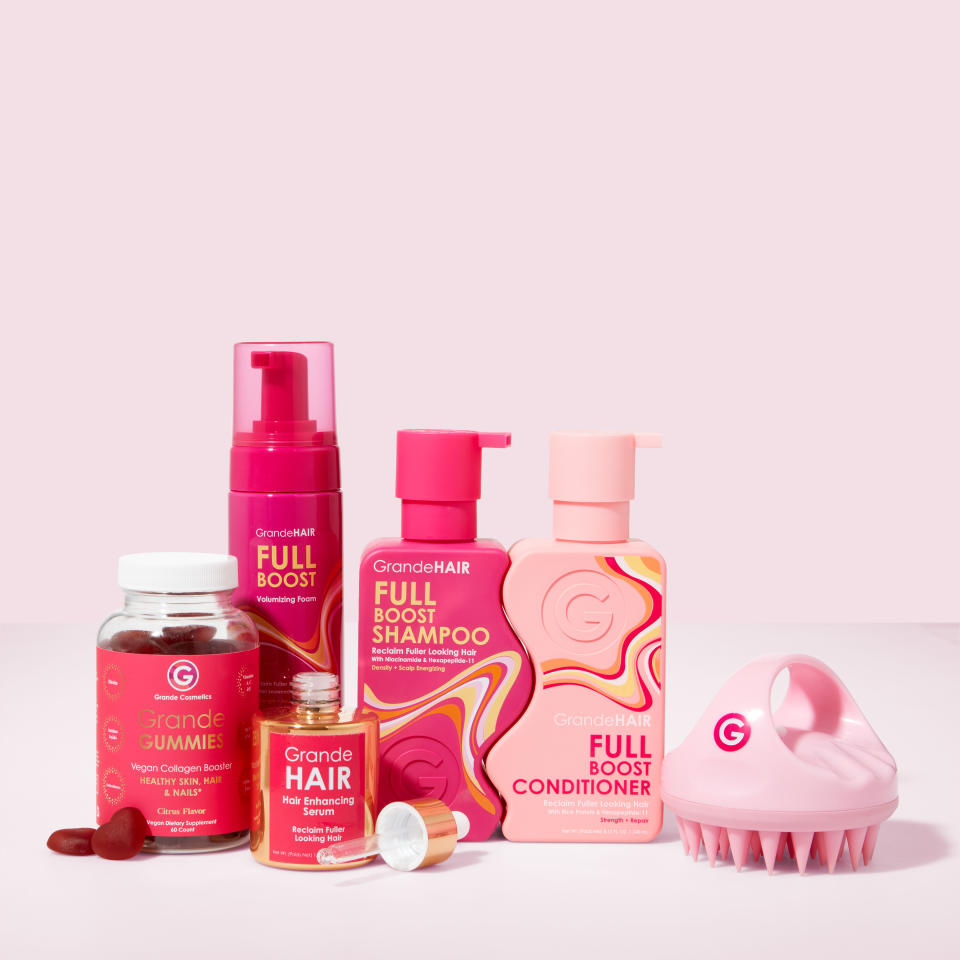
$10-$79 at grandecosmetics.com, amazon.com, ultabeauty.com, macys.com
Grande Cosmetics’ new Full Boost collection harnesses procapil and the brand’s signature eyelash-boosting ingredient, isopropyl cloprostenate.
Best of WWD
